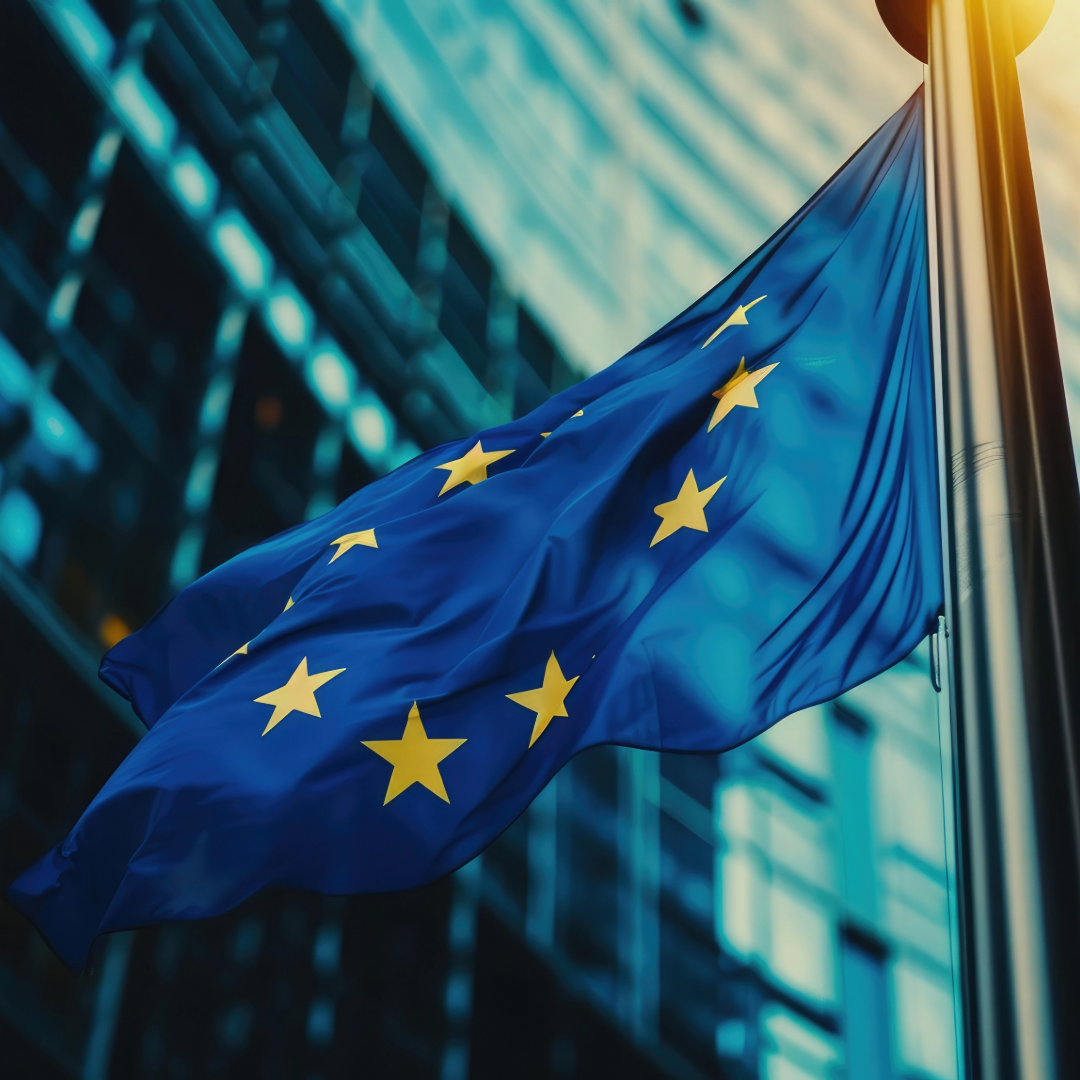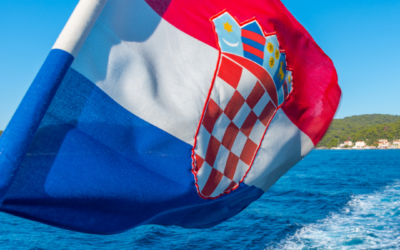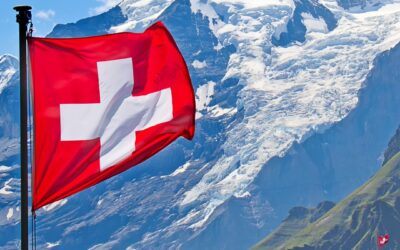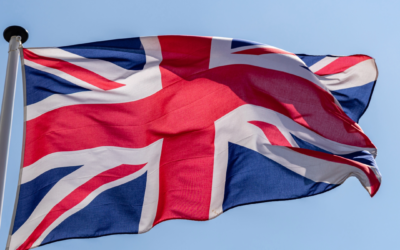A head start through sustainability: utilising the opportunities of the PPWR
European legislation is becoming increasingly ambitious when it comes to protecting the environment and promoting a sustainable economy. The Packaging and Packaging Waste Regulation (PPWR), which presents companies with new challenges – and at the same time offers great opportunities – is a particular focus. After all, those who prepare for the upcoming requirements at an early stage can not only avoid penalties and costly rework, but above all strengthen their competitiveness.
A sustainable circular economy has long been more than just an ecological goal. It offers companies clear advantages. In addition, customers are increasingly demanding environmentally friendly products and rewarding companies that are committed to sustainability. We reveal how you can not only improve your environmental footprint by integrating sustainable principles, but also secure your market share – and why early action is the key to success.



Why EU regulations are important for companies
The European Union is pursuing a clear goal with its sustainability legislation: the transition to a functioning circular economy in which resources are used efficiently, waste is minimised and materials are reused. New regulations at EU level are doubly important for companies: on the one hand, they establish binding rules that can lead to penalties or restrictions if they are disregarded. On the other hand, they provide clear guidance on how to establish sustainable business practices. Those who act early and integrate the new requirements into their processes can not only protect themselves legally, but also benefit from a competitive advantage.
Efficient resource utilisation as a success factor
Switching to sustainable and circular economic principles brings ecological and, above all, economic benefits for companies. A central starting point is the more efficient use of resources. This means less waste, better reuse of materials and optimised procurement of raw materials.
For example, the PPWR provides for the use of recycled materials in packaging and the reduction of packaging sizes. By implementing measures that fulfil these requirements, companies can reduce costs along the entire value chain. Material savings reduce dependency on increasingly scarce and expensive resources. At the same time, expenditure on waste disposal can be minimised.
Another advantage is resilience to crises on the raw materials markets. Companies that rely on closed loops reduce their vulnerability to supply bottlenecks or price fluctuations.
Sustainability as a customer magnet
Sustainability is no longer a niche topic – it has become a key purchasing criterion for consumers. More and more people are paying attention to how products are manufactured, what materials are used and what impact their consumption has on the environment. Companies that actively focus on sustainability can capitalise on this development and retain customers in the long term.
This offers companies the opportunity to stand out from the competition through sustainability. Offering sustainable products or services not only increases customer satisfaction, but also attracts new target groups who value environmentally conscious consumption.
In addition, sustainable behaviour strengthens trust in the brand. Companies that transparently demonstrate how they are making their processes more environmentally friendly and actively participating in the circular economy can improve their image and position themselves as pioneers in the field of sustainability. This is also becoming increasingly important in the B2B sector, as business partners are placing more and more value on sustainable supply chains.
Innovation through adaptation to EU requirements
New EU regulations such as the PPWR pose challenges for companies – but they are also a driver for innovation. Adapting to stricter regulations is forcing companies to rethink processes, products and supply chains and make them more sustainable. This often results in completely new approaches that not only protect the environment, but also secure long-term competitive advantages. One approach here can be closed material cycles, in which waste from production is reintegrated into the manufacturing process. This allows companies to cut costs and reduce their dependence on primary raw materials.
Digitalisation also plays an important role. Smart technologies such as digital product passports or blockchain applications ensure greater transparency in the supply chain and enable better traceability of materials. This is not only advantageous in terms of EU regulations, but also strengthens the trust of customers and investors.
Conclusion: Act now and benefit in the long term
Sustainability and adapting to new EU regulations such as the PPWR are undoubtedly genuine investments in the future, but they also come with challenges. Switching to sustainable processes, products and supply chains initially requires effort, be it in the form of time, financial resources or strategic reorientation. For smaller companies in particular, the additional costs and organisational effort can be daunting at first.
However, these investments pay off in the long term. Efficient resource utilisation not only reduces running costs, but also makes companies less dependent on commodity markets. At the same time, innovations and sustainable business models create new market opportunities and secure the trust of customers and partners.

LIZENZERO.EU makes packaging compliance in Europe very easy.
Do you ship your products to different countries in the EU? Many different legal requirements and obligations can make the whole thing quite complicated – but don’t worry, we’ll do it for you. How do we do it? With our licensing service, we take over all obligations for you by power of attorney. Sounds good? We’ll be happy to advise you.
For shipping to Germany, you can easily fulfill your packaging obligations yourself via Lizenzero.de.
EPR in Croatia: What exporters need to know
If you’re selling or shipping products to Croatia, there’s one topic you can’t ignore: Extended Producer Responsibility (EPR). This regulation requires companies to take responsibility for the entire lifecycle of their products. And it’s not just aimed at businesses based in Croatia – EPR also applies to exporters from the EU and abroad.
EPR in Switzerland – Recycling for businesses
Clear EPR obligations already apply in many European countries. Manufacturers and retailers are responsible for the entire life cycle of their packaging and must register with the relevant national systems and pay licence fees. But what is the situation in Switzerland?
EPR UK: current obligations for retailers in relation to packaging
Extended Producer Responsibility (EPR) is a European regulation that makes manufacturers, importers and companies responsible for the life cycle of their products and packaging in accordance with the polluter-pays principle. EU countries can interpret the EPR regulations differently, which is why your obligations may vary from country to country. If you are shipping goods to the UK, you should therefore familiarize yourself with the exact regulations in the country in advance in order to avoid sanctions and be compliant. In the following article, we will give you an overview of the current EPR obligations in the UK and take a look at upcoming changes.




